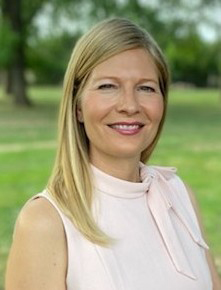A health coach’s view of the brain/body connection
Caring for and watching both of her parents age, particularly her mother who lived her final years with Alzheimer’s disease, had a profound effect on Regina Kubelka. A graphic designer with 20+ years of experience at her craft, the co-resident of Colorado and Texas realized that she couldn’t continue to live her life the same way.

Five years later, Kubelka has channeled the motivation she felt from her parents’ passing to not only totally change her own life, but she is creating meaningful change for people all over the country.
More than three years ago, Kubelka embarked on a new career as an online health coach to not only help her focus more on her own physical health, but to encourage others to do the same thing. The decline of her parents’ health was a constant reminder of the importance of remaining physically vital, and the connection between physical and mental health.
It’s no coincidence that she has incorporated an element of Alzheimer’s awareness into her curriculum, providing education for her clients on the essential brain/body connection.
Kubelka feels so passionately about the subject that she has volunteered with the Alzheimer’s Association to lead classes on
Healthy Living for Brain & Body.
“Watching the progression of my mother with Alzheimer’s changed my thinking about what I wanted to do the rest of my life,” Kubelka said. “I got passionate about my health after seeing what my parents went through, and passionate about what I could do to reduce my own risk.”
Kubelka also found that the “incredible connections” she forged through the Alzheimer’s Association while participating in grief and caregiver support groups contributed to her career change.
“I ended up coaching some of those caregivers, people experiencing ‘caregiver burnout,’” she said. “That gave me my first experience in coaching. I had been there and I could relate and offer empathy.”
Incorporating Alzheimer’s lessons into health coaching
In her role as a professional health coach, Kubelka provides each new client with an overview of her own background and personal interests, including her family’s experiences with Alzheimer’s disease. For those who respond mentioning a similar family background, she will revisit that during the course of her coaching, and provide information on related health practices.
“It's kind of exciting because a lot of times people don’t realize that anyone of any age can begin reducing their risk of developing dementia, even in their 20s and 30s,” she said. “It’s important to develop those lifestyle factors. It’s never too soon to set those healthy habits.”
As for older clients who may be concerned about the onset of symptoms, such as brain fog, Kubelka encourages them to be proactive. For them she provides a list of modifiable risk factors that they can consider and adopt.
“Picking just one of the 15 modifiable risk factors can be empowering,” she said. “The healthy lifestyle that we encourage for reducing Alzheimer’s risk is the same thing a doctor would give you for heart disease, diabetes, or high blood pressure. By choosing one or more risk factor to address, they’re not just waiting around. They’re doing something proactive to protect their own brain health.”
Kubelka has even found an interested audience among her company’s hundreds of professional health coaches scattered across the country. She has begun posting information weekly on the company’s internal messaging channel regarding setting goals to reduce the risk of developing dementia. She now has a following of more than 85 fellow coaches who are helping to share the messages with their clients.
“We’re all learning and helping our clients learn how to reduce risk for cognitive decline,” she said.
There are more than 76,000 Coloradans and 400,000 Texans among the 6.5 million people in the United States living with Alzheimer’s disease, the 7th-leading cause of death and the only major disease without a prevention or cure.
To learn more about the information, programs and services offered at no charge by the Alzheimer’s Association, go to
alz.org or call the Association’s free 24/7 Helpline at 800-272-3900.
Alzheimer's Association
The Alzheimer's Association leads the way to end Alzheimer's and all other dementia — by accelerating global research, driving risk reduction and early detection, and maximizing quality care and support. Our vision is a world without Alzheimer's and all other dementia.™ For more information, visit www.alz.org or call the 24/7 Helpline at 800.272.3900.